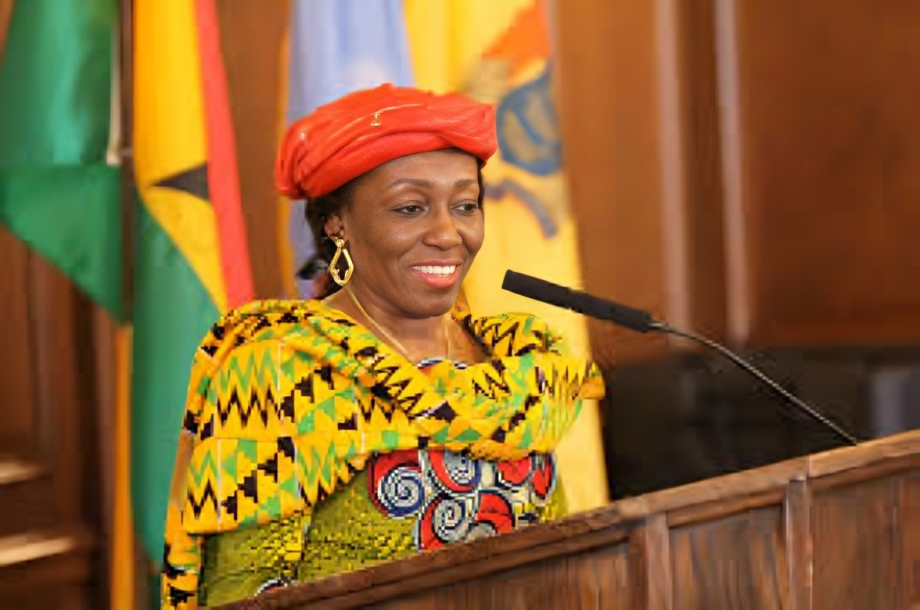Biography of Nana Konadu Agyeman-Rawlings, Ghana’s longest-serving first lady

Nana Konadu Agyeman-Rawlings was born on November 17, 1948, in Cape Coast, in Ghana’s Central Region. She hails from a distinguished and well-educated family. Her father, J.O.T. Agyeman, was a respected statesman and entrepreneur, while her mother, Felicia Agyeman, was a trained teacher whose professional career ended following marriage — in accordance with restrictive British colonial laws that barred married women from teaching at the time.
Coming from a family that valued discipline, education, and civic duty, Nana Konadu grew up in an environment that emphasised leadership, public service, and moral responsibility—traits that would later define her national and continental legacy.
Education and Early Development
Nana Konadu began her education at the Ghana International School in Accra before proceeding to the prestigious Achimota School, where she first met her future husband, Jerry John Rawlings, in 1961. She later enrolled at the Kwame Nkrumah University of Science and Technology (KNUST), where she studied art and textiles.
At KNUST, she distinguished herself not only academically but also as a student leader, serving as the student leader of Africa Hall, one of the university’s most active female residences. Her leadership and advocacy for women’s welfare in higher education became early indicators of her lifelong commitment to gender empowerment.
In 1975, she earned a Diploma in Interior Design from the London College of Arts, further broadening her creative and professional expertise. Over the years, she pursued additional professional qualifications in management, administration, and policy studies, building a well-rounded foundation for her future leadership roles.
Marriage and Family Life
Nana Konadu married Flight Lieutenant Jerry John Rawlings in 1977, two years before he led his first military coup in 1979. Their marriage produced four children — Zanetor (Ezenator), Yaa Asantewaa, Amina, and Kimathi Rawlings.
Despite the intense pressures of public life and her husband’s political journey, Nana Konadu maintained a strong family unit. Her first child, Dr Zanetor Agyeman-Rawlings, would later follow in her parents’ footsteps by entering politics, serving as a Member of Parliament for the Klottey Korle Constituency.
Her husband, Jerry John Rawlings, Ghana’s longest-serving Head of State, passed away in November 2020, marking the end of one of the most influential political partnerships in Ghana’s modern history.
READ MORE: How to Rank on Google in 2026: Proven SEO Strategies That Actually Work
Role as First Lady
Nana Konadu Agyeman-Rawlings served as First Lady of Ghana twice — first from June 4 to September 24, 1979, during the Armed Forces Revolutionary Council (AFRC) regime, and later from December 31, 1981, to January 7, 2001, under the Provisional National Defence Council (PNDC) and the democratically elected National Democratic Congress (NDC) governments led by her husband.
During her unprecedented two-decade tenure, she transformed the traditionally ceremonial role of First Lady into a powerful platform for social change. Unlike her predecessors, she was visible, outspoken, and directly involved in grassroots mobilisation — a dynamic approach that made her one of the most influential women in Africa during the 1980s and 1990s.
Championing Women’s Empowerment
In 1982, Nana Konadu founded the 31st December Women’s Movement (DWM)—a nationwide, non-governmental organisation dedicated to empowering Ghanaian women socially, economically, and politically.
Under her leadership, the movement became one of the largest women-led organisations in Africa, boasting over two million members across all regions of Ghana. The DWM’s initiatives included:
Establishing more than 870 pre-schools and child development centres across the country.
Promoting family planning, literacy, and vocational training programmes for rural women.
Supporting income-generating activities such as food processing, textile weaving, and cooperative farming.
Encouraging women’s participation in local governance and national decision-making.
Her advocacy also led to the passage of the Intestate Succession Law (PNDCL 111) in 1985, which protected the property rights of widows and children when a husband or father died without a will. This was a landmark achievement in Ghana’s legal history, improving the rights and dignity of women under customary law.
READ MORE: 10 Richest People to Have Ever Lived
Through her influence, Ghana also became the first country in the world to ratify the United Nations Convention on the Rights of the Child (UNCRC) in 1991, reinforcing her status as a global advocate for child welfare and women’s empowerment.
Political Career
Nana Konadu’s transition from activism to partisan politics reflected her deep commitment to social transformation. As a founding member of the National Democratic Congress (NDC), she was instrumental in shaping the party’s gender inclusion policies.
In 2009, she was elected First Vice-Chairperson of the NDC, a position that placed her among the most powerful political figures in Ghana. However, in 2011, she made history when she contested incumbent President John Atta Mills for the NDC’s presidential nomination — becoming the first woman in Ghana to challenge a sitting president for a major party’s flagbearership.
Following her loss, she resigned from the NDC and established the National Democratic Party (NDP) in October 2012. In 2016, she officially became the first woman to contest the presidency of Ghana under the NDP banner. Although her electoral performance was modest, her candidacy represented a historic milestone for women in Ghanaian politics.
Legacy and Recognition
Nana Konadu Agyeman-Rawlings remains one of Africa’s most influential female leaders and a trailblazer in women’s rights advocacy. Her life’s work has earned her recognition from international organisations, including the United Nations, the African Union, and various women’s leadership forums across the continent.
In 2018, she released her memoir, “It Takes a Woman”, which chronicles her personal journey, challenges, and philosophy of empowering women “one step at a time”.
Her advocacy has inspired a new generation of African women to engage in politics, leadership, and community development. Today, she stands as a symbol of resilience, purpose, and empowerment — a woman who not only broke barriers but also built enduring institutions for the advancement of others.

